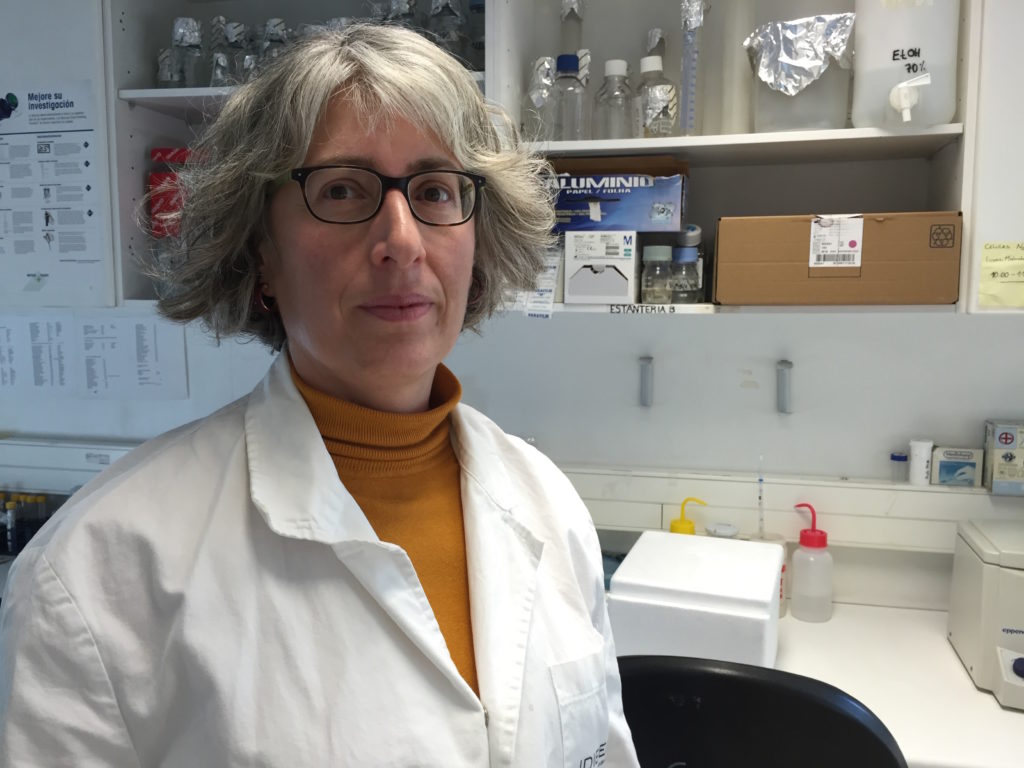The major limitation involving the transplantation of cells, tissues and organs of animal origin (xenotransplantation, mostly of the pig) in humans is rejection due to the activation of various immune system mechanisms. Overcoming this limitation requires great efforts in xenotransplantation research, such as that led IDIBELL researcher Cristina Costa, who has devoted most of his scientific career into this field of biomedicine.
Working with a model of pig chondrocytes (the main cartillag cells), Costa, along with his team, has recently shown that overexpression of certain inhibitory molecules of the immune system in pig transgenic chondrocytes protects these cells from attack by the human natural antibodies and complement system, that recognize them as foreign cells that must be attacked and eliminated. The study, published in the journal European Cells and Materials, part of the will to advance in the implementation, in patients, of therapy to repair articular cartilage from pig cells, considering that autologous (patient’s own cells ) technique is costly and not always effective.
The research team from IDIBELL has characterized two lines of transgenic chondrocytes in order to find out what genetic changes may be more useful to protect against the human immune system. On the one hand, it studied cells overexpressing H transferase molecule, in order to compete with the responsibility of presenting the antigen alpha-gal, strongly attacked by human natural antibodies. On the other hand, it has characterized the cells expressing the human complement inhibitor CD59. Moreover, the work comprises overexpression experiments, using a viral vector, of high levels of CD59 and other complement inhibitor, the DAF protein, and the characterization of the response of these modified cells depending on their response to immune attack. Recent experiments have shown that overexpression of the CD59 molecule confers on porcine chondrocytes greater protection profile, and the ability, not described so far, to control other proinflammatory pathways.
In summary, the study identifies possible approaches based on genetic engineering to avoid rejection of porcine chondrocytes used in cartilage repair. These results allow us to conclude that advances in animal transgenesis will permit the use of these chondrocytes in tissue engineering applications applied to the clinic.
Reference of the paper:
Sommaggio R, Bello-Gil D, Pérez-Cruz M, Brokaw JL, Máñez R, Costa C.
Genetic engineering strategies to prevent the effects of antibody and complement on xenogeneic chondrocytes.
Eur Cell Mater. 2015 Nov 18;30:258-70.

